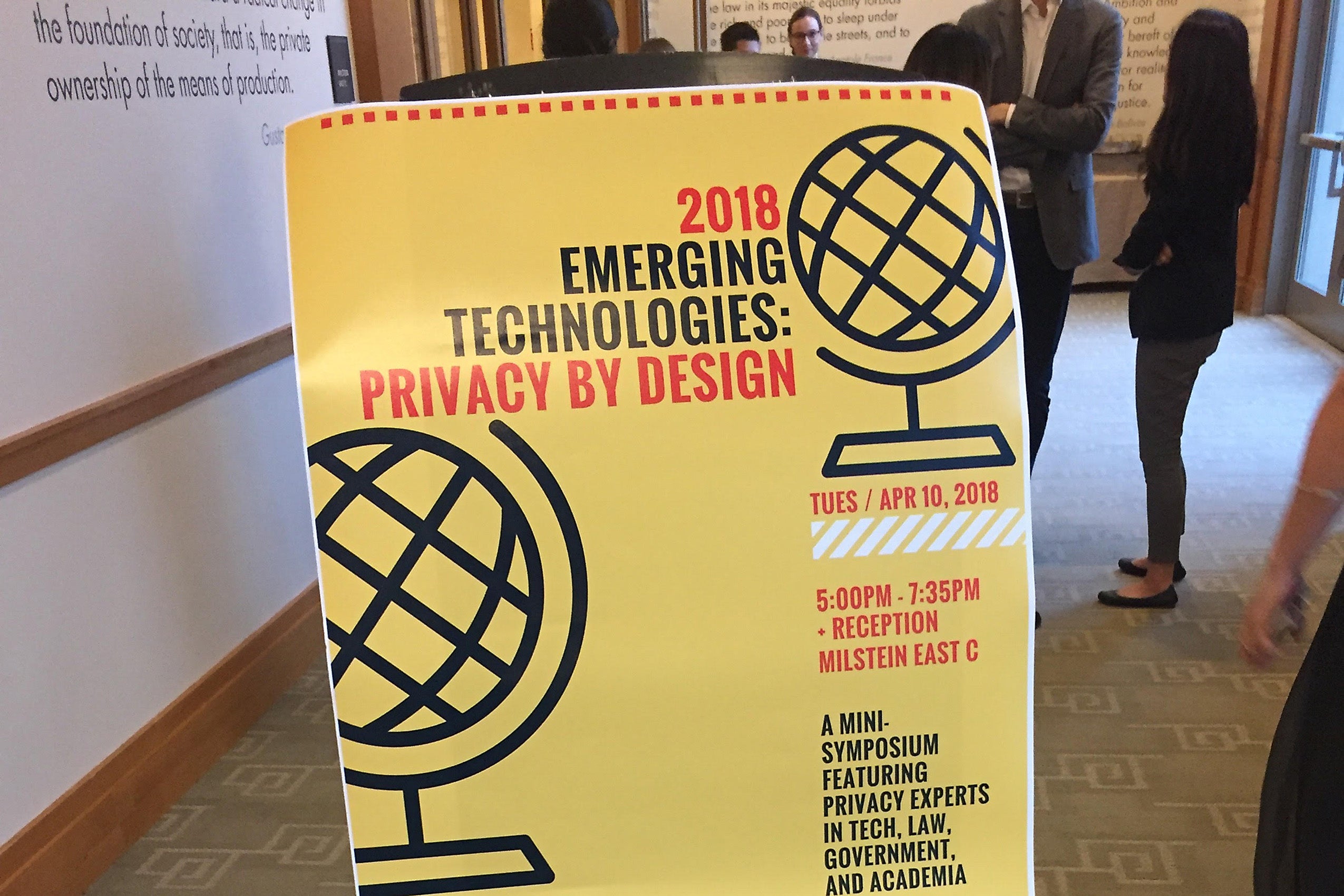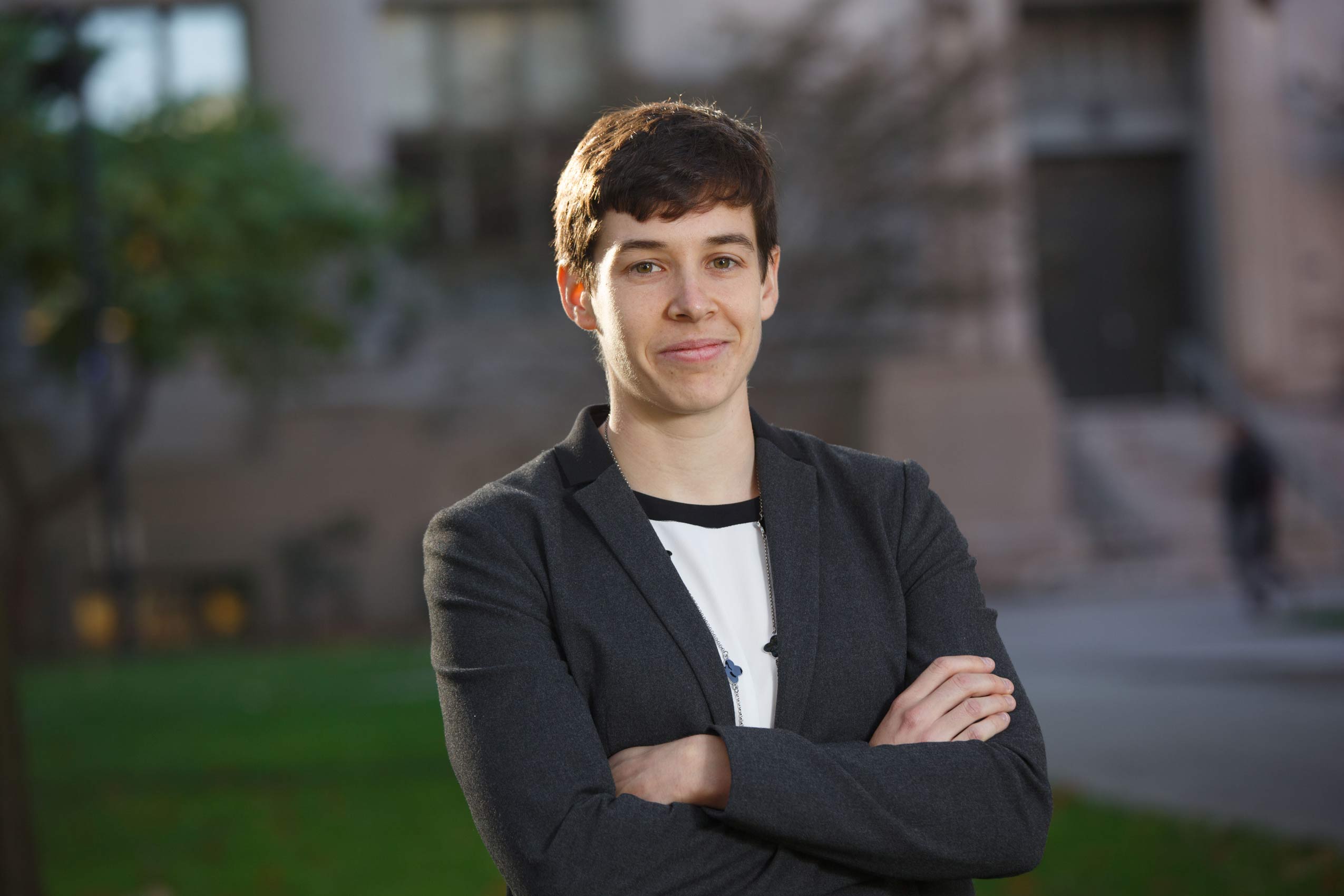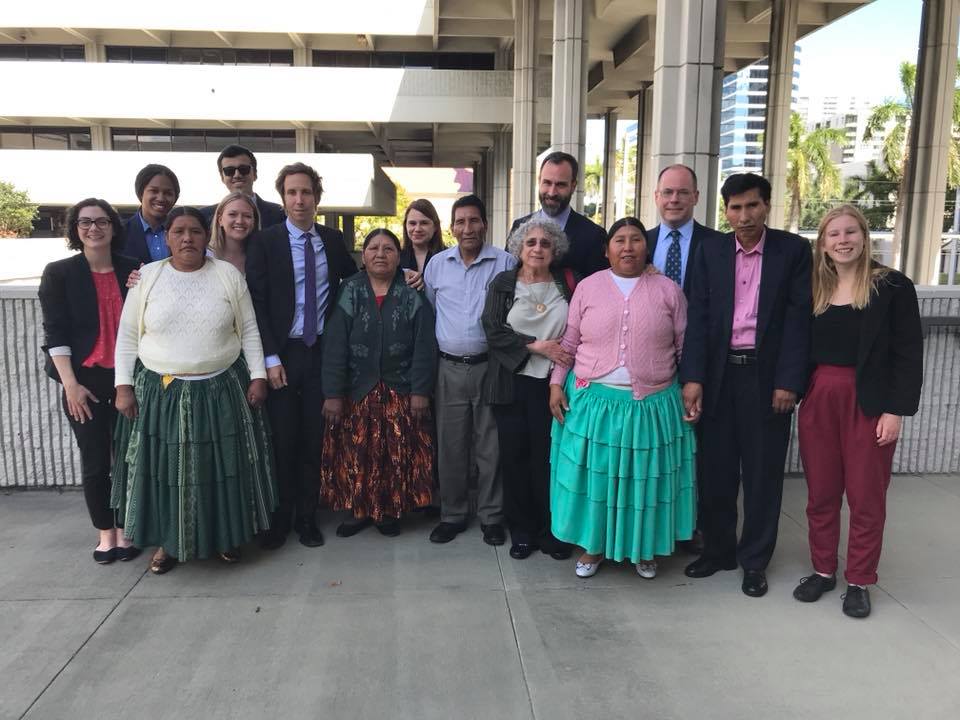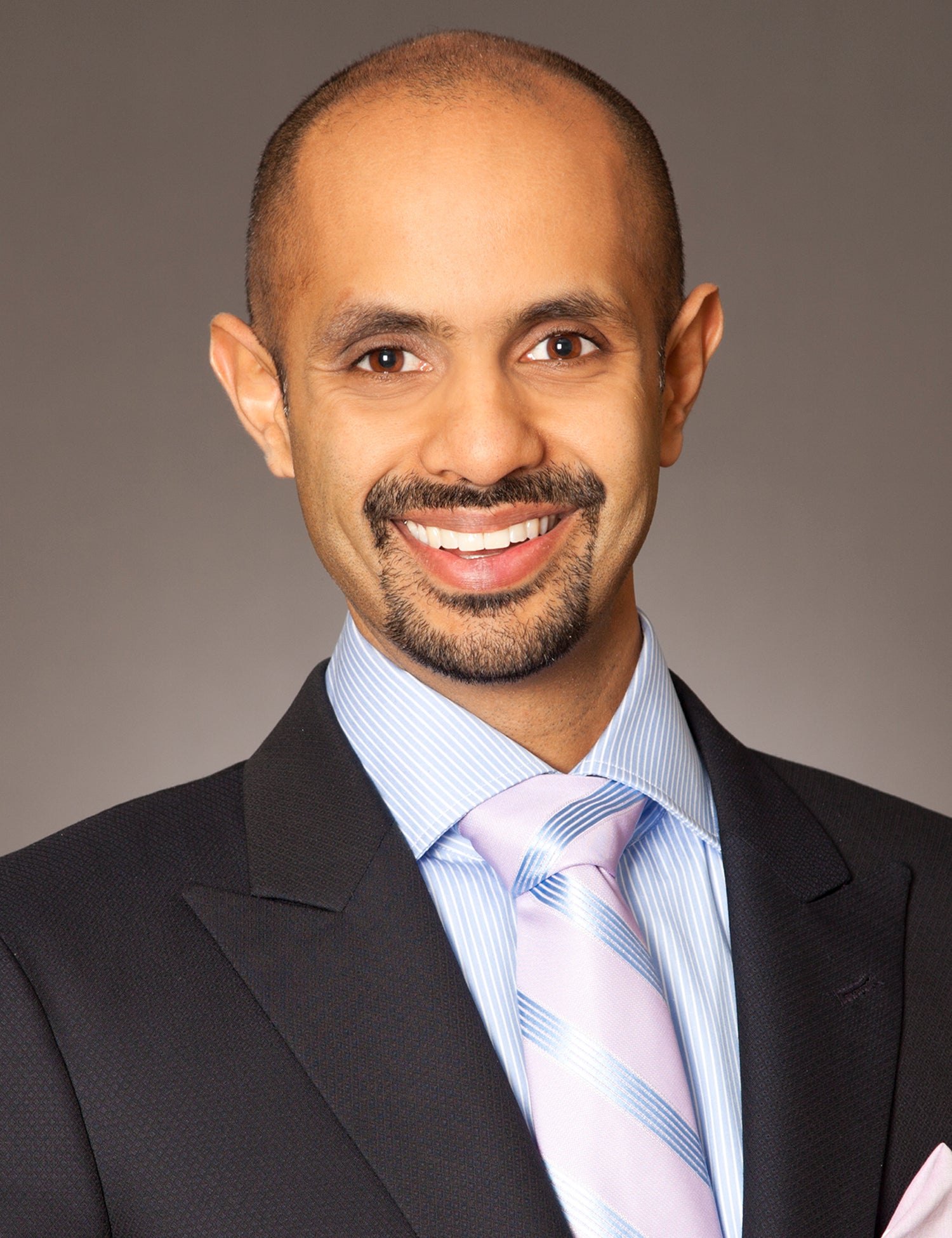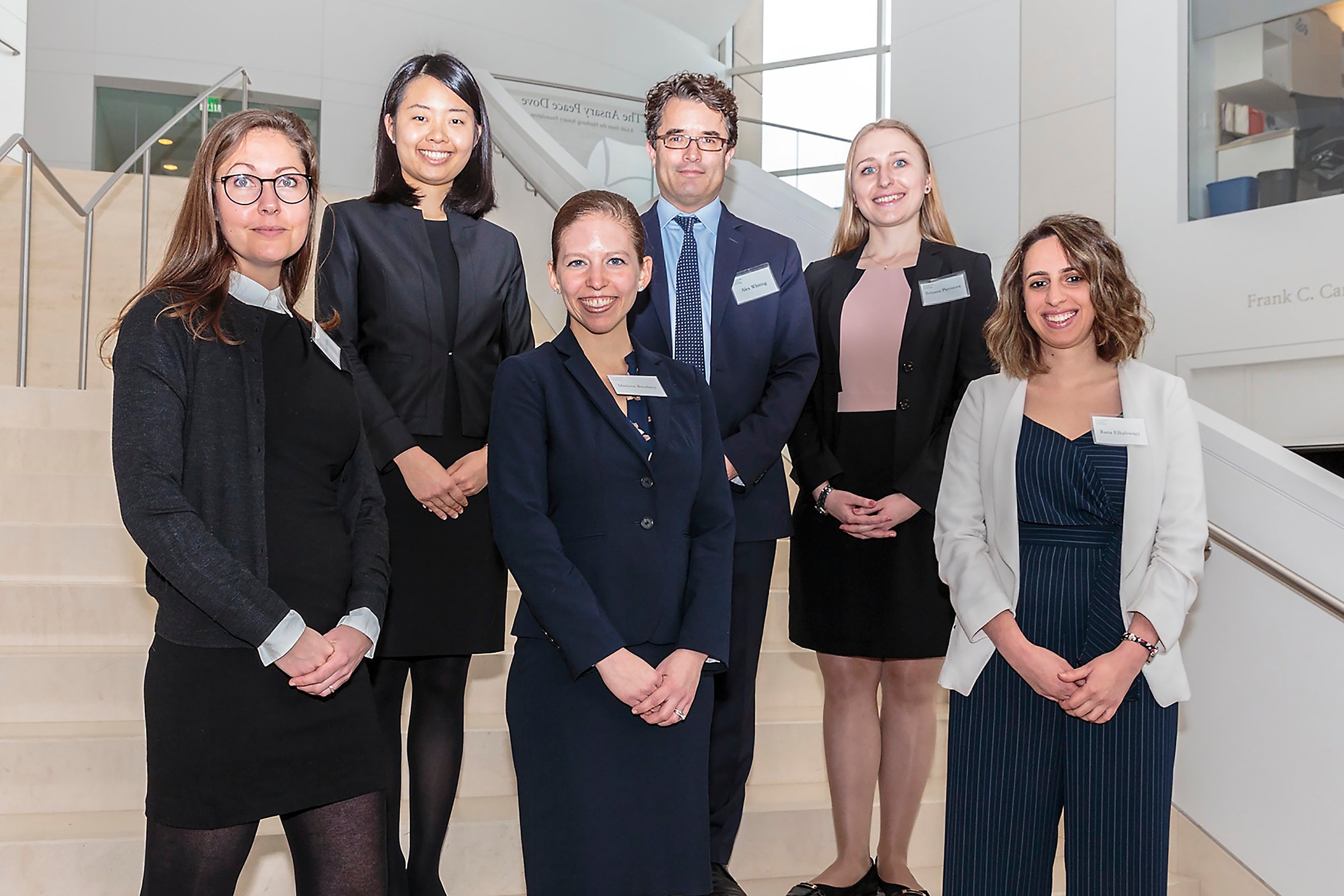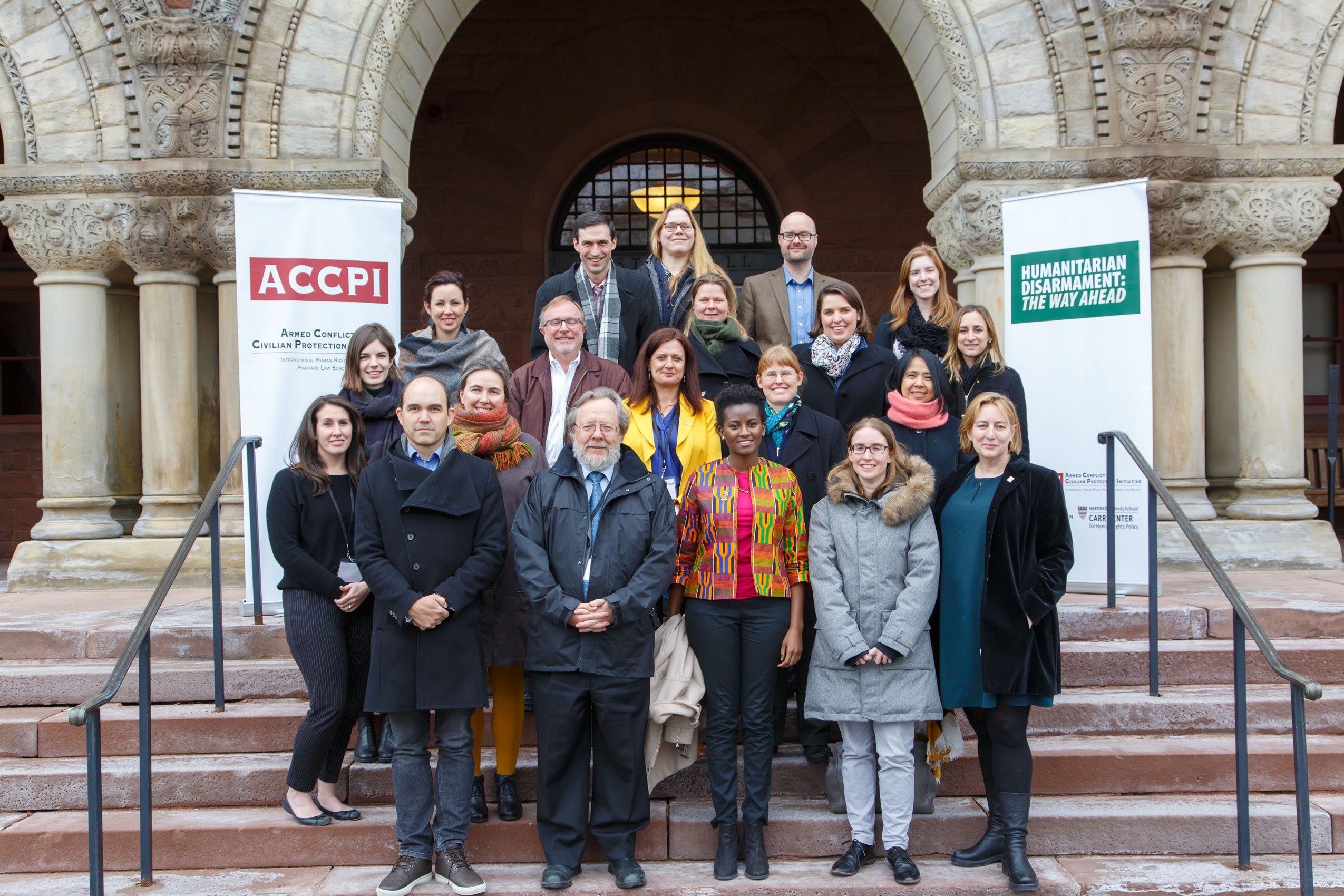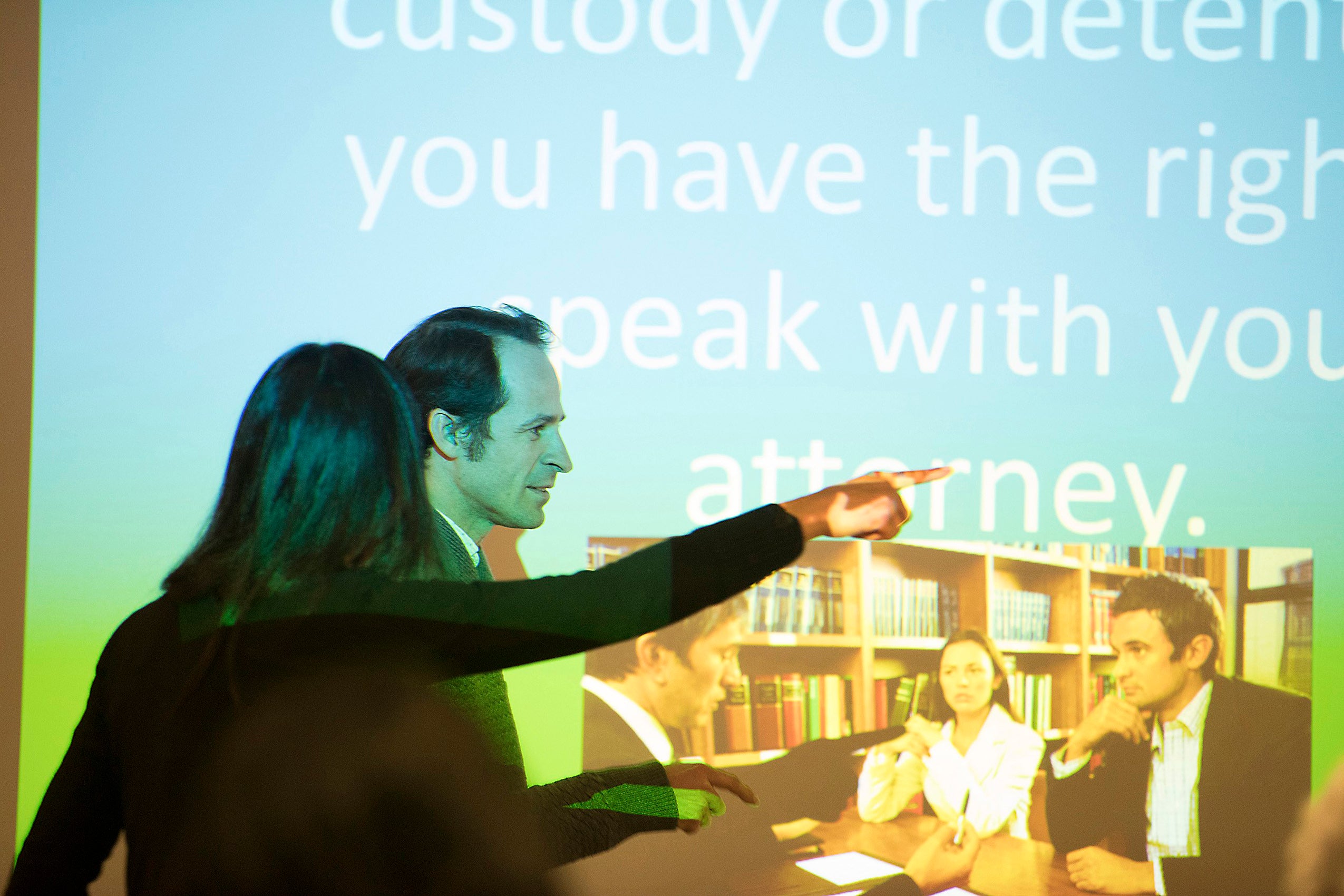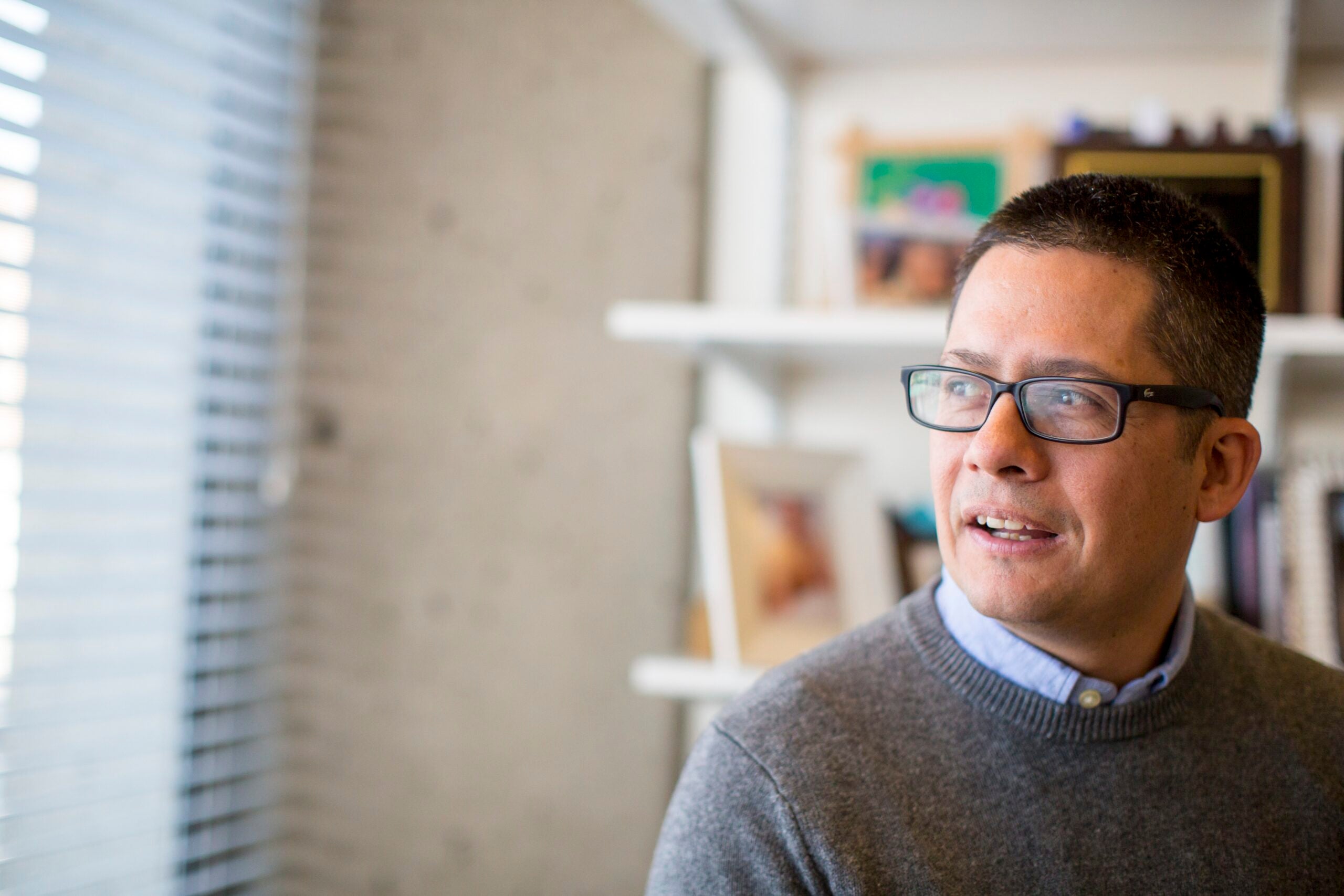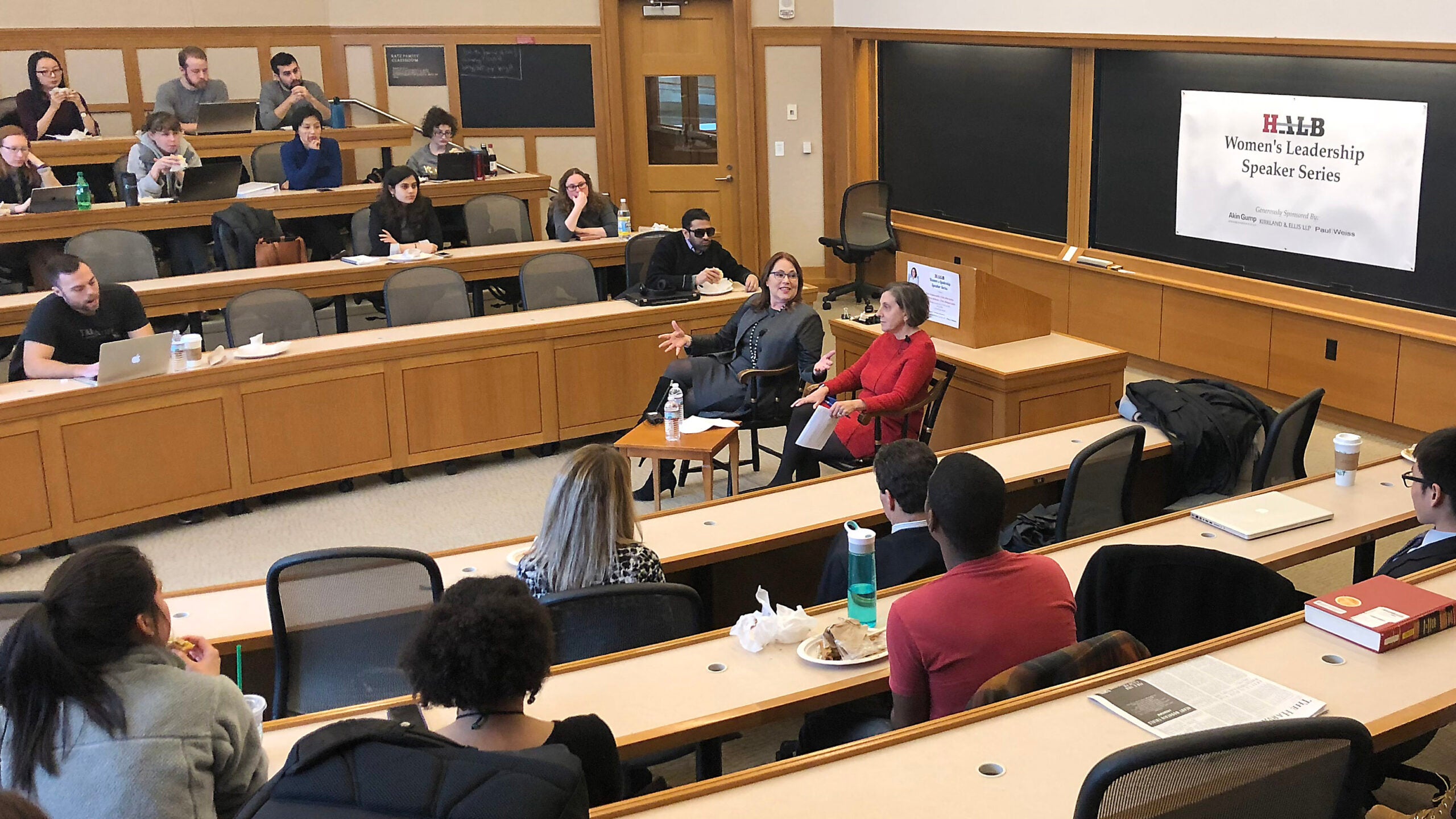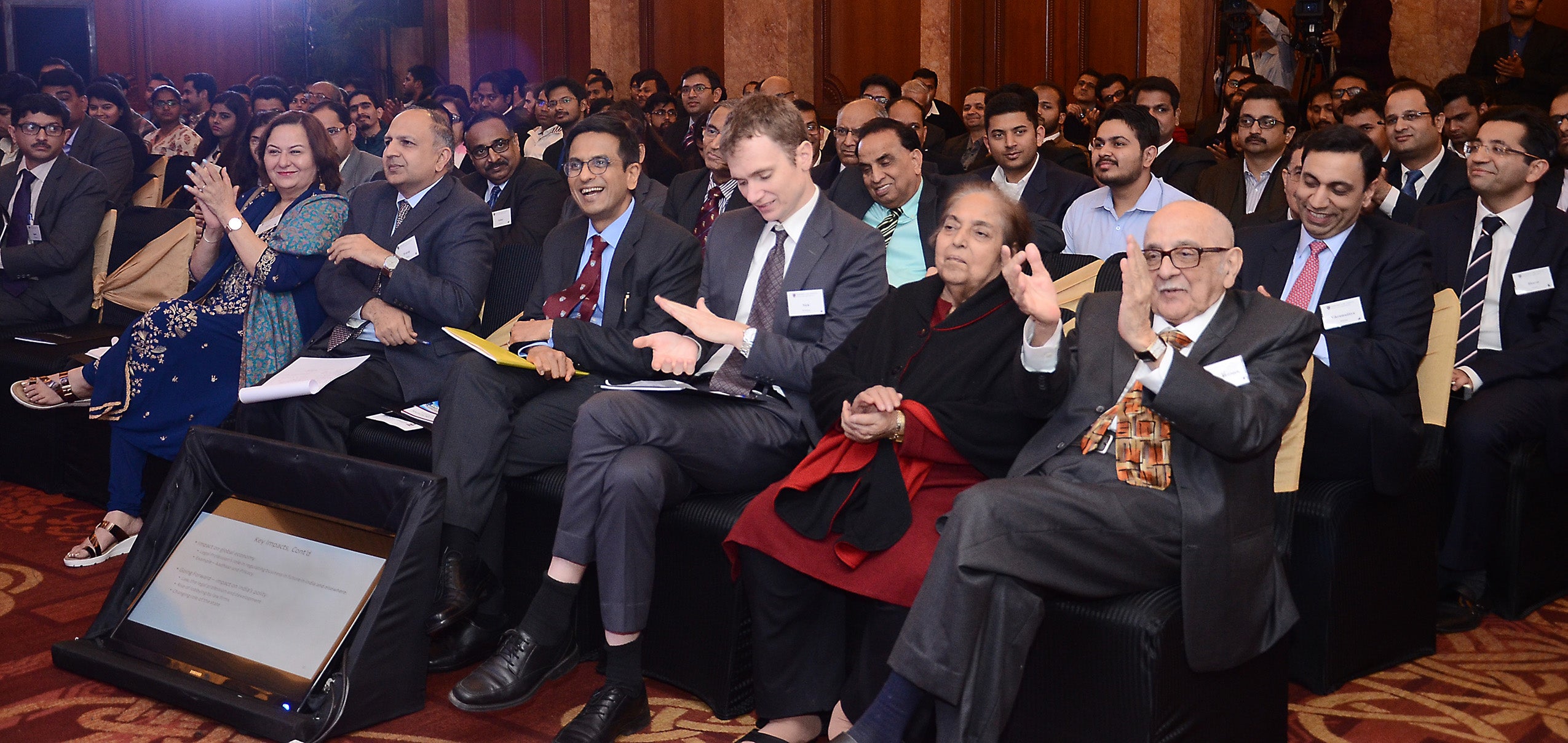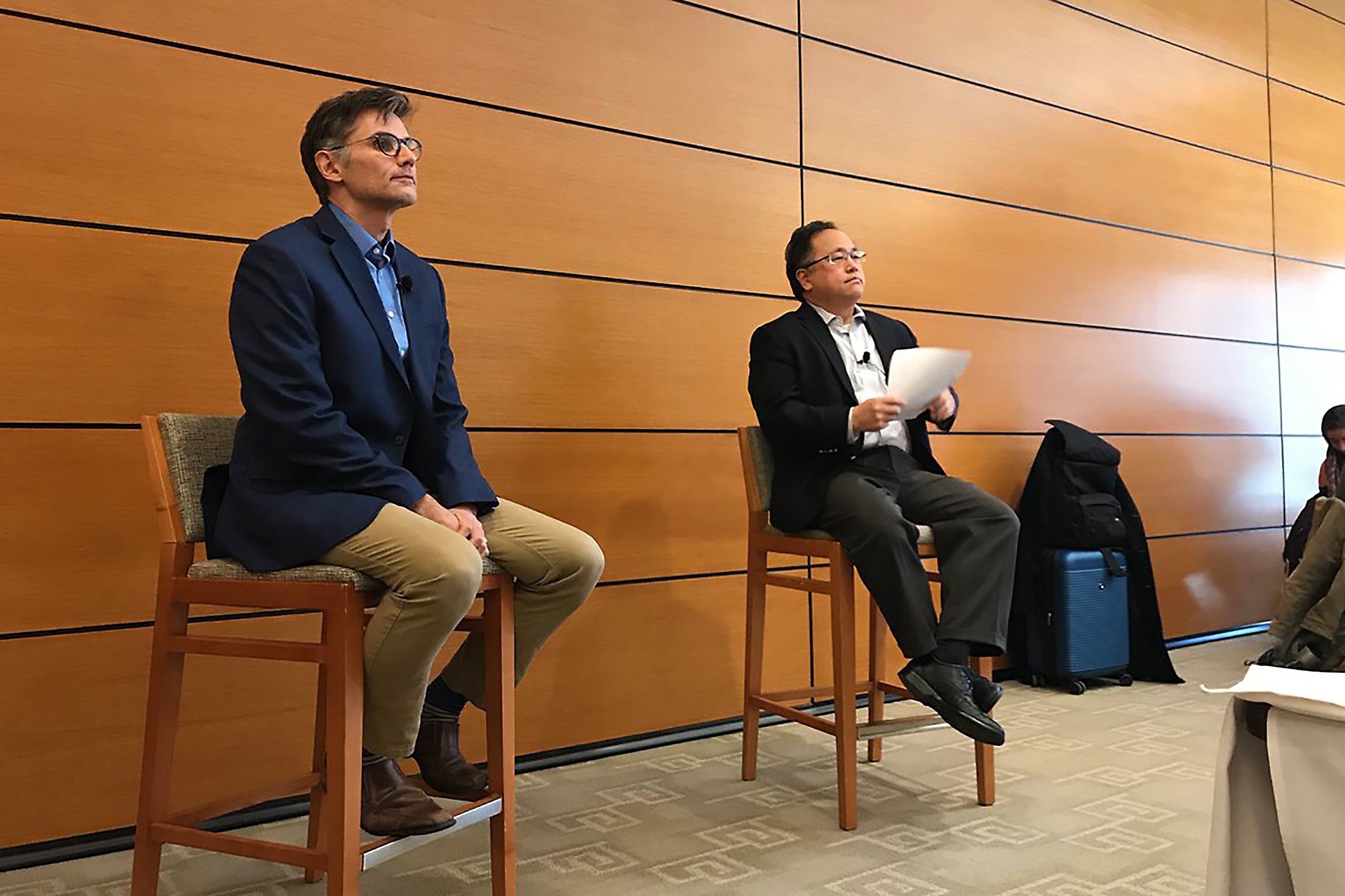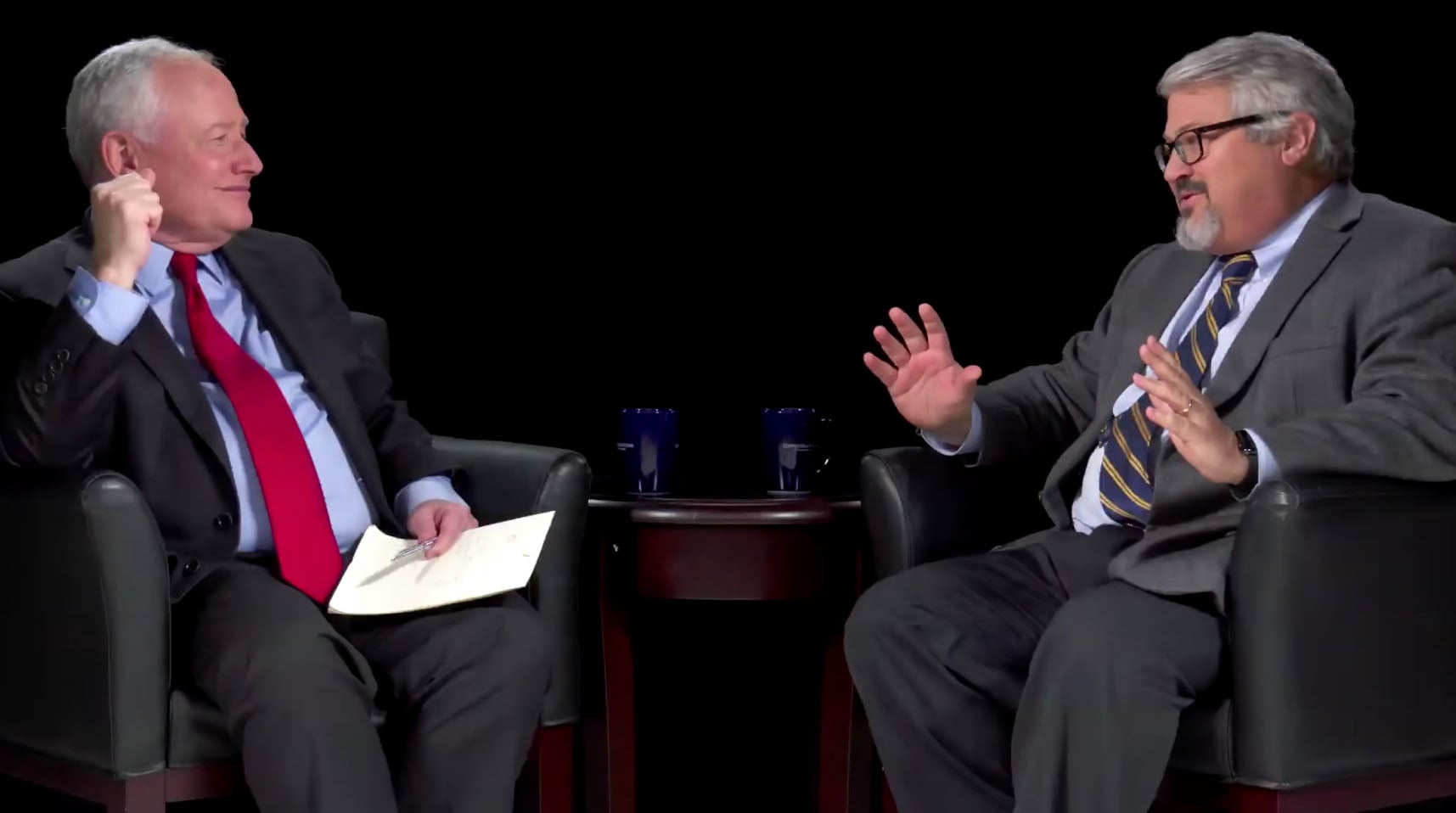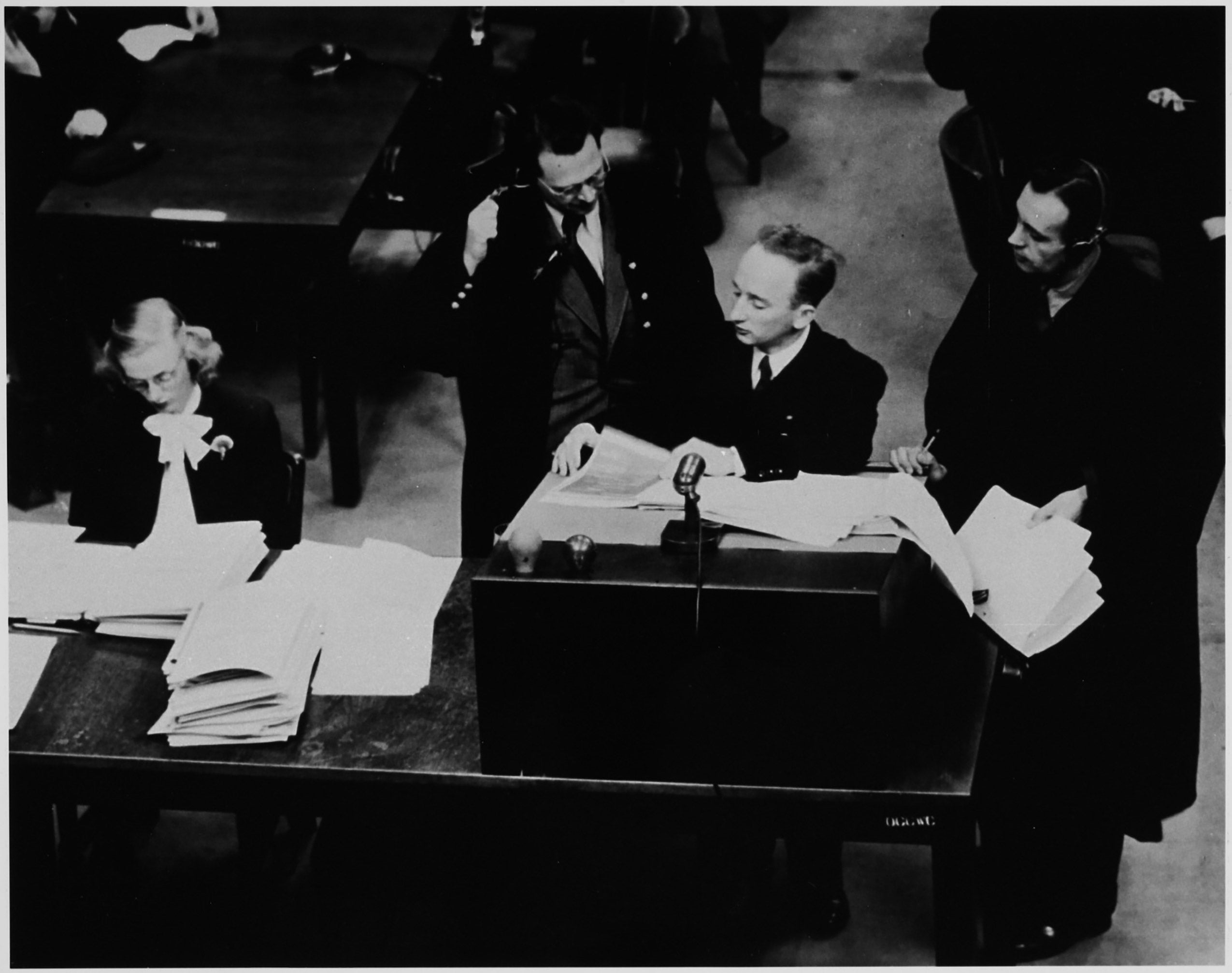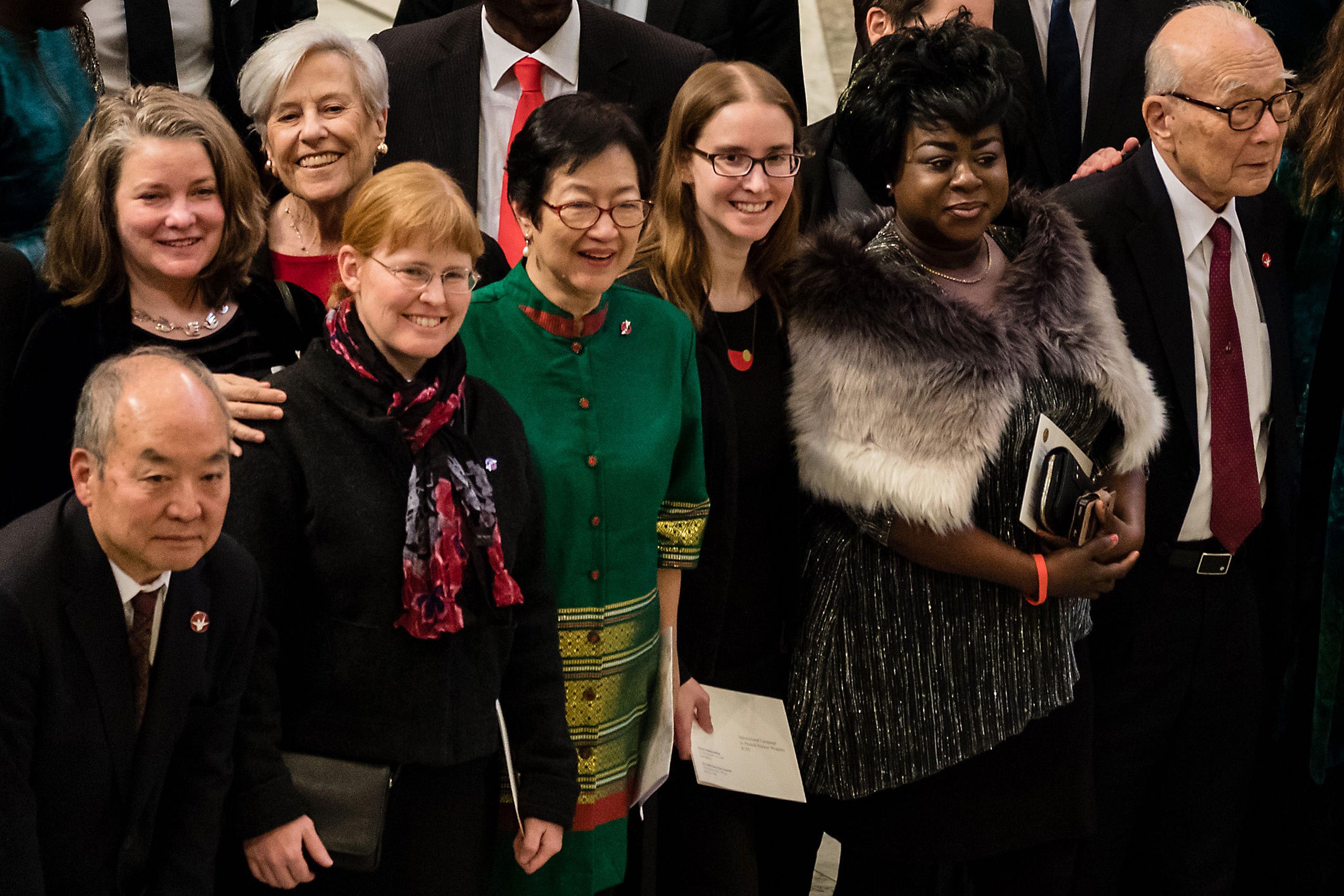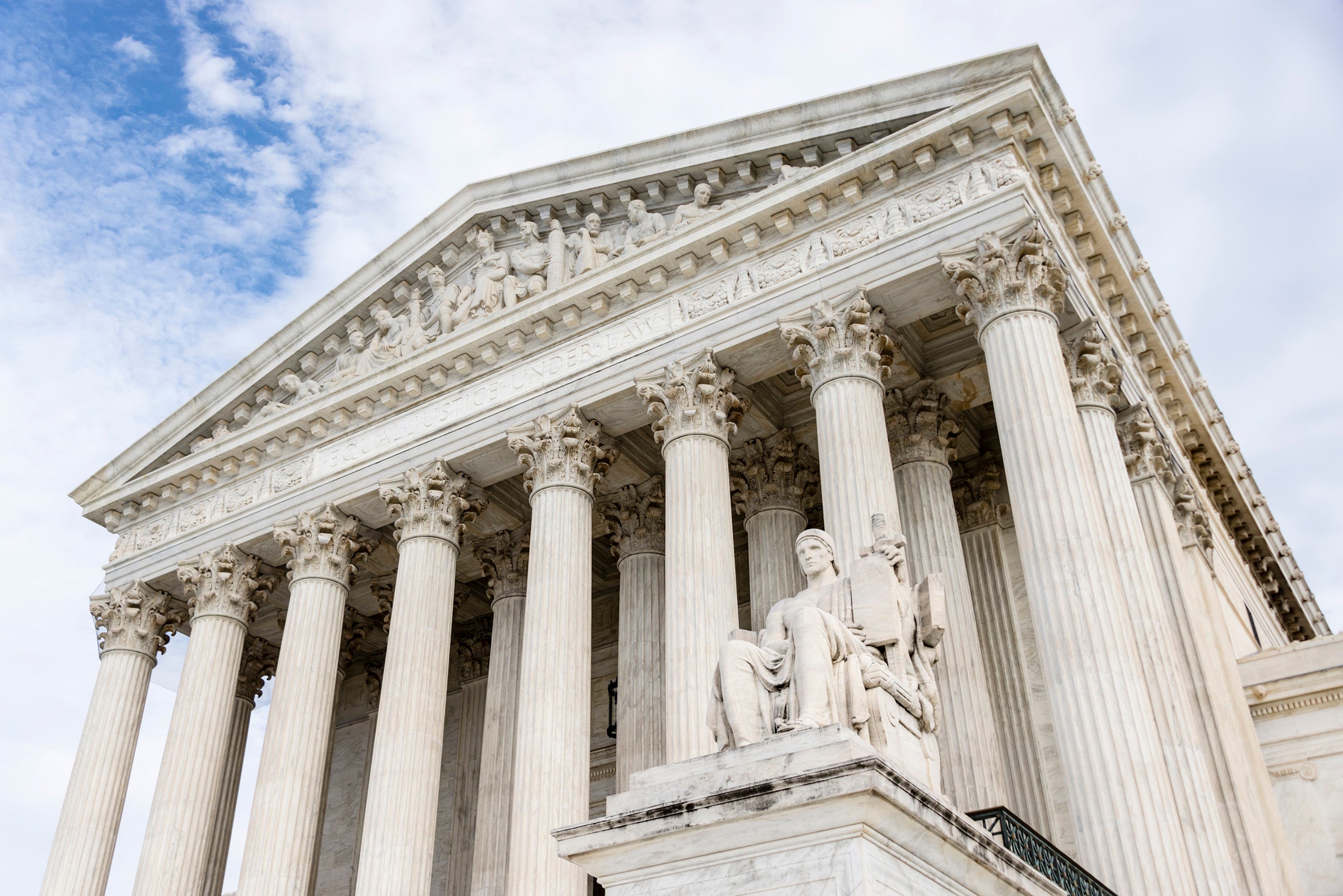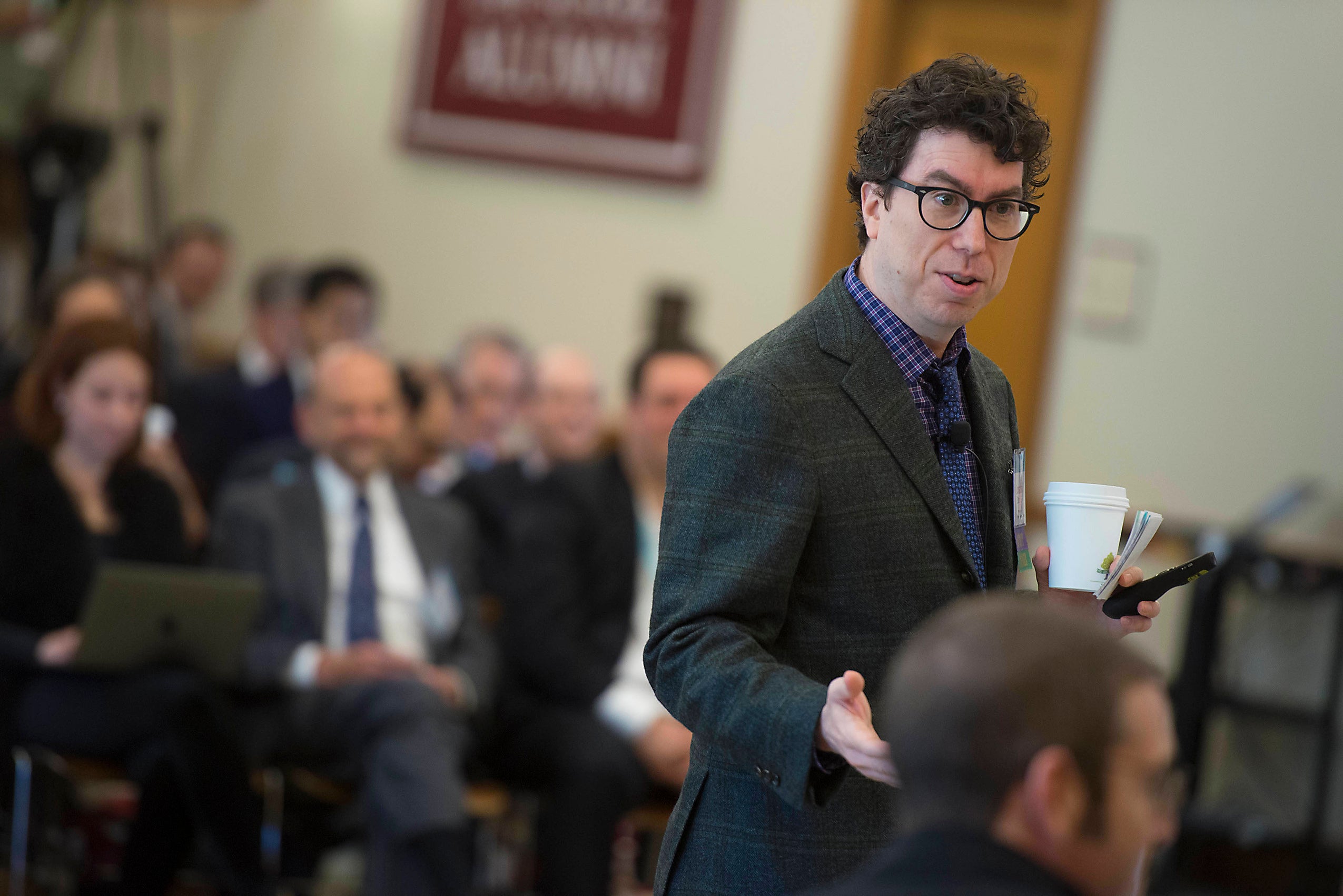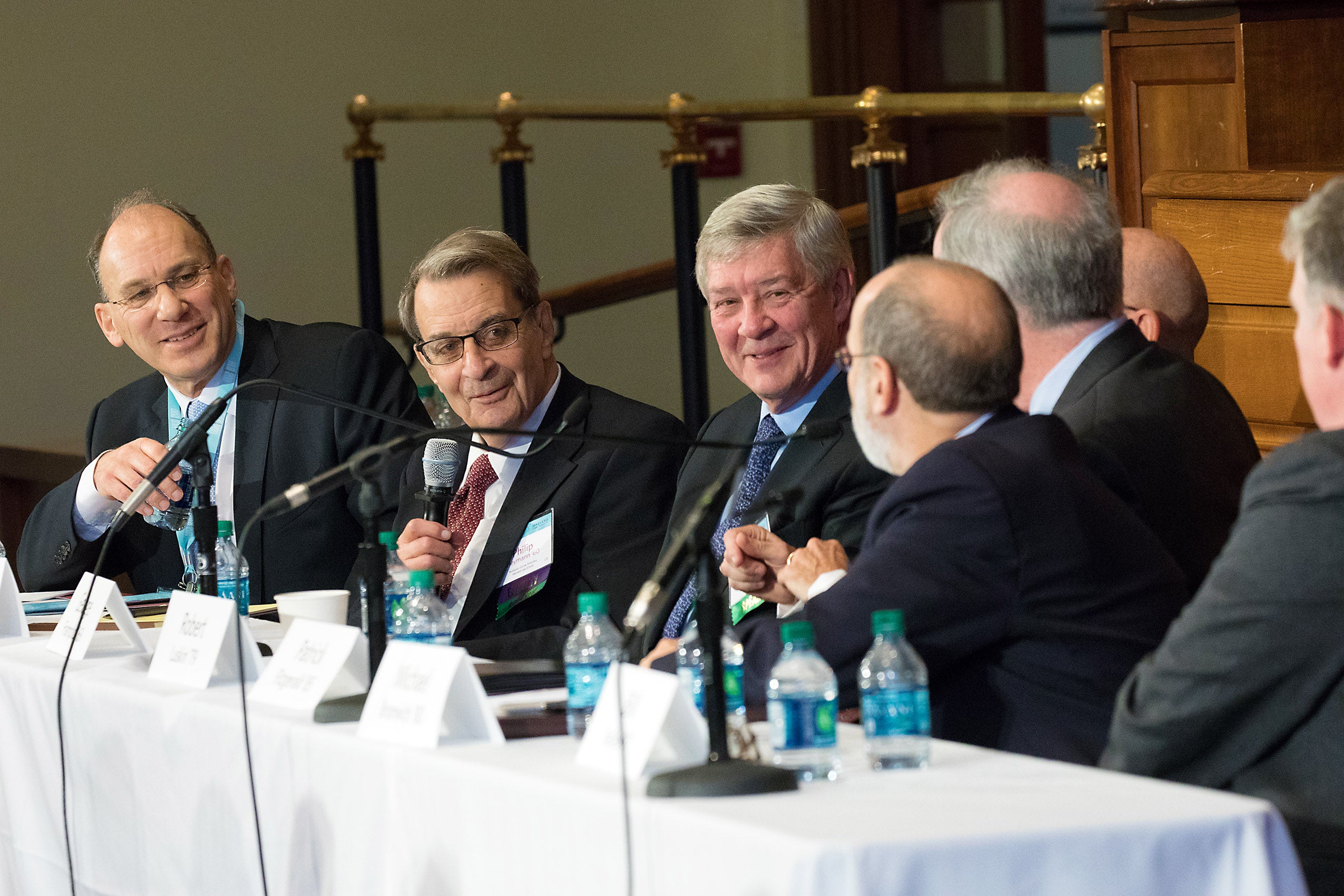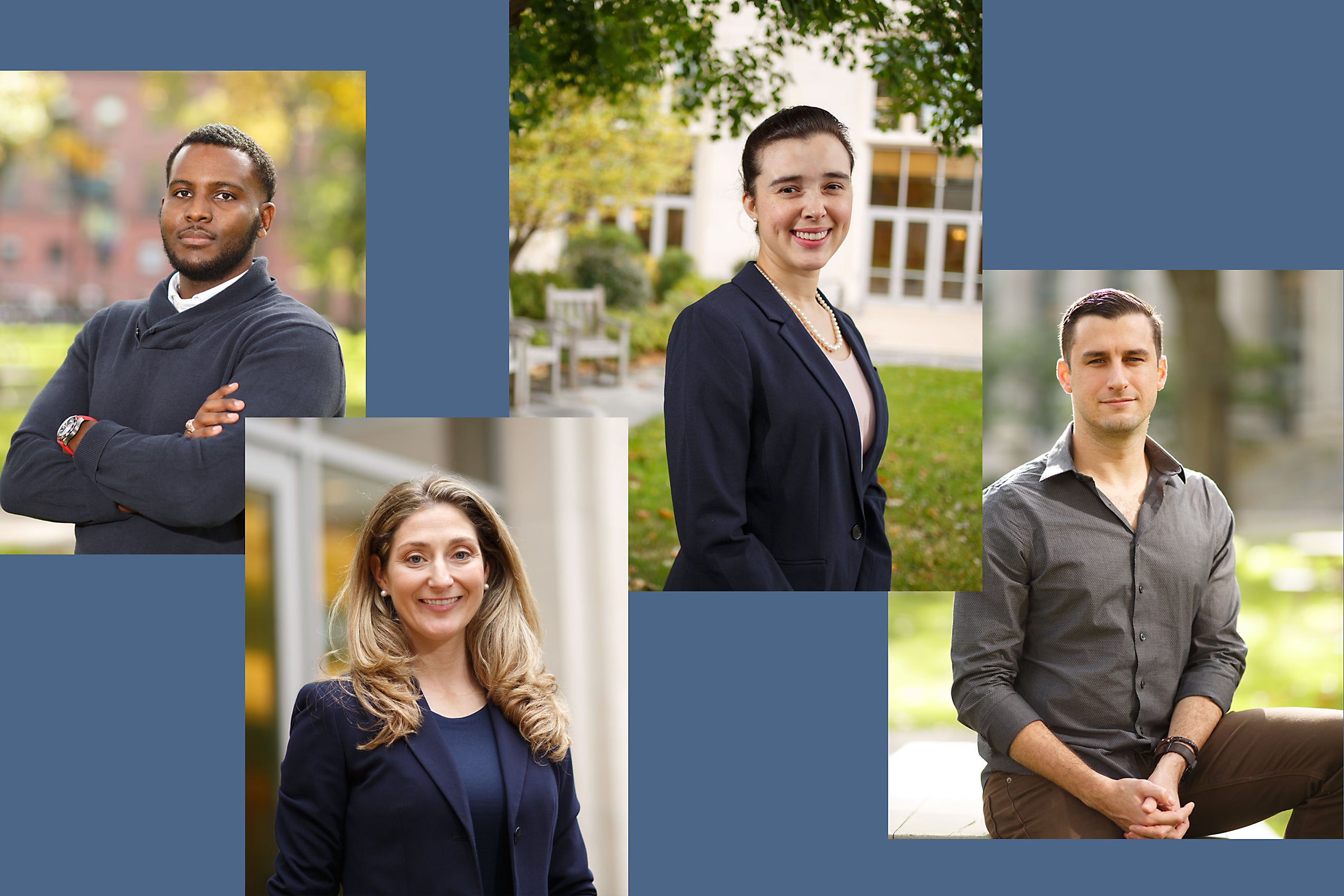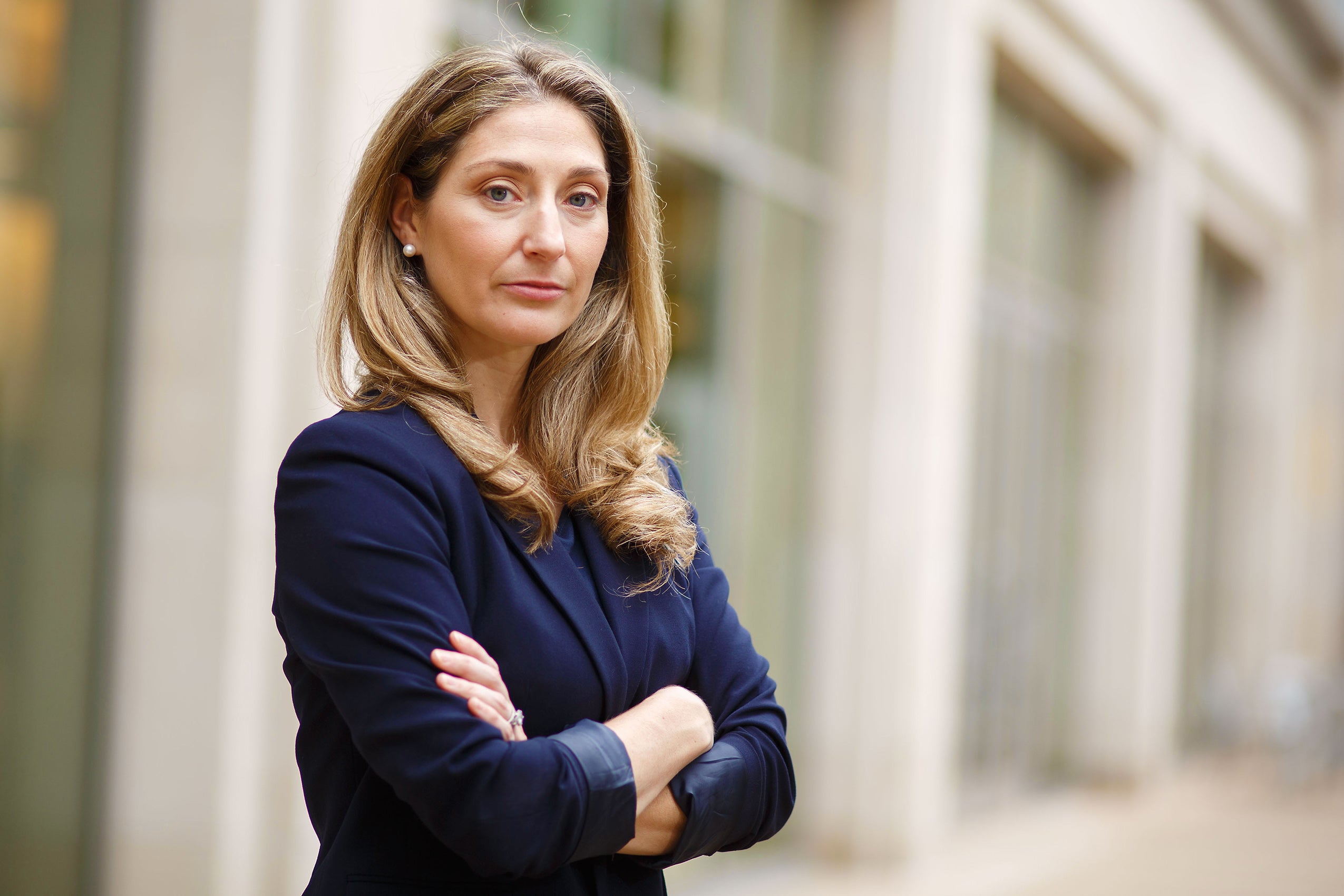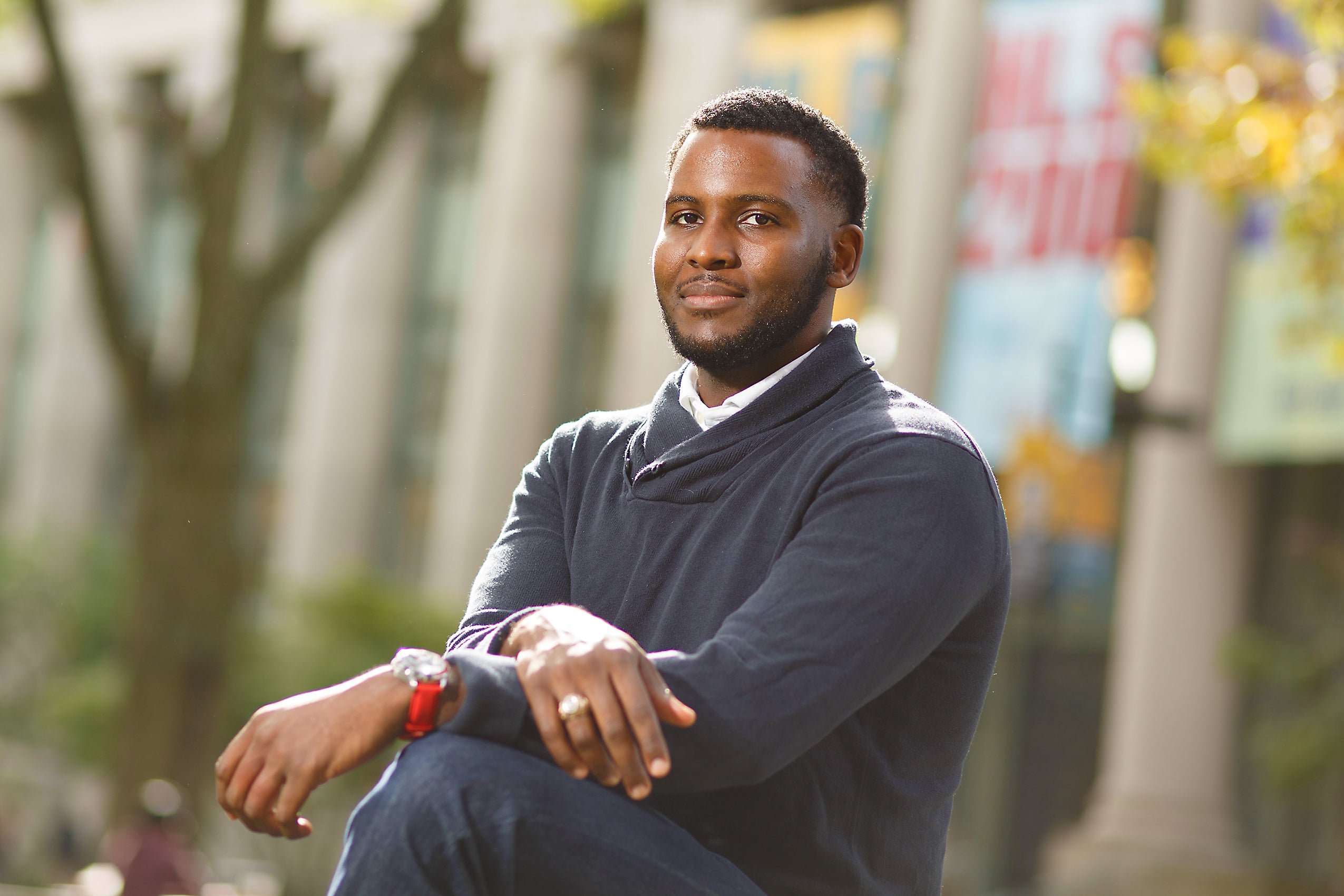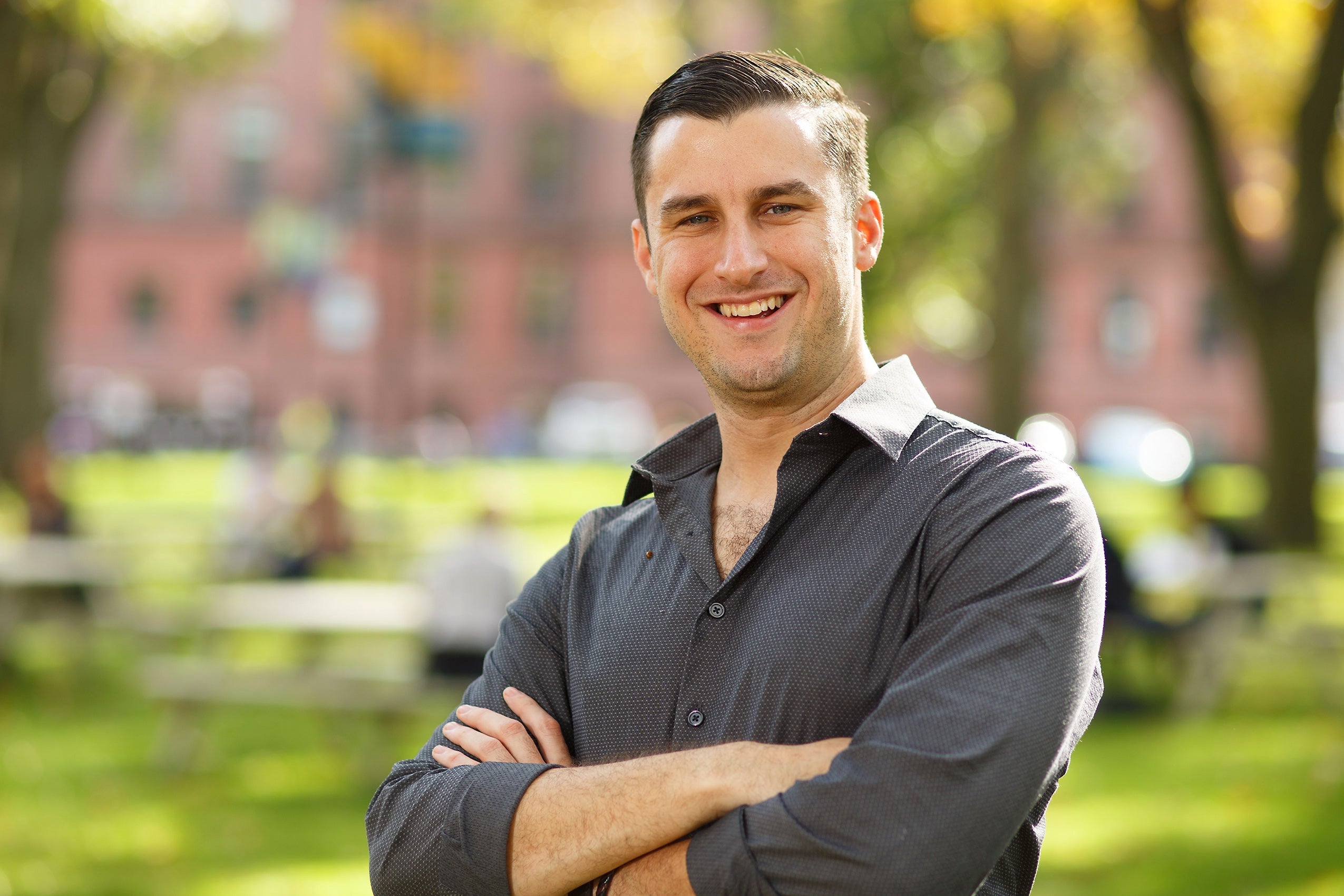Topics
National and International Security
-
Emerging Technologies: Privacy by Design
April 18, 2018
Students of Professor Urs Gasser’s Spring 2018 Comparative Digital Privacy seminar hosted a symposium on 'Privacy by Design,' convening experts from government, private practice, industry, and academia to weigh in on all things privacy-related, from the difficulty of defining privacy to a comparison of the regulatory regimes in the United States and the European Union.
-
Sarah Grant ’19 chosen for ethics fellowship
April 9, 2018
Sarah Grant ’19 is one of 12 law students and early-career attorneys chosen for the 2018 Law Program of the Fellowships at Auschwitz for the Study of Professional Ethics to participate in a two-week program in Germany and Poland this summer, which uses the conduct of lawyers and judges in Nazi-occupied Europe as a way to reflect on ethics in the legal profession today.
-
Jury finds former Bolivian president responsible for extrajudicial killings of indigenous people; awards $10M in damages
April 3, 2018
In a landmark decision today, a federal jury found the former president of Bolivia and his minister of defense responsible for extrajudicial killings carried out by the Bolivian military. The landmark litigation began with a collaboration between Bolivian partners and the Harvard Law School's International Human Rights Clinic
-
On the web, privacy in peril
March 27, 2018
Vivek Krishnamurthy studies international issues in internet governance as a clinical instructor at Harvard Law School’s Cyber Law Clinic. He spoke with the Gazette about the legal implications of the breach for Facebook, the laxity in U.S. privacy protections, and how Facebook’s difficulties may mark the end of the tech industry’s long deregulation honeymoon in this country.
-
In February, five students from Harvard Law School were selected to join their peers from 10 other leading U.S. law schools in Washington, D.C. to explore the future of public and private international law at the sixth annual Salzburg Cutler Fellows Program.
-
Humanitarian Disarmament: The Way Ahead
March 21, 2018
Earlier this month, about two dozen international experts gathered for “Humanitarian Disarmament: The Way Ahead,” the inaugural conference of the Armed Conflict and Civilian Protection Initiative (ACCPI) at Harvard Law School.
-
A celebration of immigration
March 7, 2018
At a workshop on immigrants’ rights held Monday morning at the Memorial Church, attorneys Jason Corral and Cindy Zapata of the Harvard Immigration & Refugee Clinical Program shared legal advice on how to deal with the more aggressive enforcement of immigration laws under the Trump administration.
-
Concern over a DACA deadline
February 28, 2018
Three Harvard professors and a Ph.D. student in African and African American studies have launched the DACA Seminar, a series of events on campus aimed at sparking conversations about the future of the Deferred Action for Childhood Arrivals (DACA) and immigration policy and reform, while working to understand options available to Harvard's undocumented students.
-
HALB Women’s Leadership Speaker Series hosts women firm chairs
February 12, 2018
The Harvard Association for Law and Business (HALB) hosted Kim Koopersmith, chairperson of Akin Gump Strauss Hauer & Feld, and Jami Wintz McKeon, chair of Morgan Lewis & Bockius, as a feature event in HALB’s inaugural Women's Leadership Speaker Series.
-
The Indian Legal Profession in the Age of Globalization
February 8, 2018
In early December, the Harvard Law School Center on the Legal Profession (CLP) hosted two major events in India to celebrate the publication of 'The Indian Legal Profession in the Age of Globalization: The Rise of the Corporate Legal Sector and its Impact on Lawyers and Society.'
-
Net Neutrality in the United States
February 6, 2018
A panel of leading experts convened at Harvard Law School on Jan. 25 to explore the consequences of the Federal Communications Commission's recent Restoring Internet Freedom Order.
-
Harvard Law professor Jack Goldsmith shares his perspective on American institutions and the Trump presidency in a recent interview with Weekly Standard editor-at-large Bill Kristol.
-
Documenting the Nuremberg Trials
January 18, 2018
The Harvard Law School Library uniquely owns and manages approximately one million pages of documents relating to the Nuremberg Trials: thirteen trials conducted just after World War II to prosecute leaders of the Nazi regime. To preserve the contents of these documents—which include trial transcripts and full trial exhibits—the library has undertaken a multi-stage digitization project to make the collection freely accessible online.
-
Basking in that Oslo glow
January 17, 2018
2017 was a year of notable accomplishments for Harvard Law School's International Human Rights Clinic (IHRC), and for Bonnie Docherty '01, associate director of Armed Conflict and Civilian Protection and lecturer on law at HLS.
-
The Berkman Klein Center's Cyberlaw Clinic, which provides pro-bono legal services to clients on issues relating to the internet, technology and intellectual property, has written in support of a number of technology cases in recent weeks.
-
Security concerns
December 6, 2017
The trajectory of state intelligence gathering and invasions of privacy made possible by a digital environment were the focus of a session titled “National Security: National Security, Privacy, and the Rule of Law,” part of the HLS in the World bicentennial summit which took place at Harvard Law School on Friday, October 27, 2017.
-
From Watergate to Russian election hacking, former special prosecutors reflect on the role of independent counsels
November 13, 2017
As part of Harvard Law School's bicentennial summit, a panel, “Special Prosecutors and Independent Counsels: Investigating the White House and the President of the United States,” gathered six Harvard alumni and faculty members who’ve been involved with nearly every high-profile investigation, from Watergate to Whitewater, to the leaking of Valerie Plame’s identity.
-
Veterans of service, with a belief in the law
November 8, 2017
Each year, as we honor military veterans nationwide for their service, Harvard Law Today profiles students in the incoming class who have held positions in the Armed Forces. The Class of 2020 includes the largest number of former or current service members in Harvard Law's recent history.
-
As a JAG officer, Jenna Reed prosecuted some of the most serious cases in the U.S. Marine Corps
November 8, 2017
As a JAG officer in the U.S. Marine Corps for more than six years, Jenna E. Reed LL.M. ’18 prosecuted and defended some of the most serious cases in that branch of the military, focusing on violent and special victims crimes, including shaken-baby cases and others involving children.
-
Military experience provides “a level of discipline and willingness to work hard even when it’s uncomfortable,” says Nathan Garrett Jester ’20
November 8, 2017
In becoming a Marine and then a lawyer, Nathan Garrett Jester ’20 is interested in someday going into local or state politics in his home state of Georgia, to serve the community where he was born and raised.
-
Steven Kerns ’20: “Leading people toward a better world required me to trade in my rifle for books”
November 8, 2017
Steven Kerns ’20 was a high school dropout, a self-described ‘rebel without a cause’ from Long Beach, Calif., when he joined the U.S. Army as a teenager looking for adventure, with vague notions of changing the world.
